If you've ever found yourself in a situation where unethical behavior has disrupted the integrity of your workplace or community, you know how important it is to address the issue head-on. Crafting a formal complaint letter can be a daunting task, but it's essential for voicing your concerns and seeking resolutions. In this article, we'll guide you through the process of drafting an effective letter that conveys your message clearly and respectfully. So, let's dive in and explore how you can put your thoughts into words and make a difference!

Professional Language and Tone
In various professional settings, instances of unethical behavior can significantly disrupt workplace harmony and productivity. For example, harassment cases in corporate environments often lead to a toxic atmosphere affecting employee morale. Discrimination issues may arise regarding gender, race, or age, contributing to a hostile environment that violates workplace policies, such as those outlined in the Equal Employment Opportunity Commission (EEOC) guidelines. Furthermore, inadequate response to such behavior by management can result in increased turnover rates, financial loss, and potential legal ramifications. Addressing these ethical concerns is crucial for maintaining a respectful and productive workplace culture.
Clear Identification of Parties Involved
Unethical behavior in corporate environments can severely impact workplace morale and productivity. The complaint should clearly identify the parties involved, including the individual's full name, job title, and department within the organization, along with the overarching corporate name. For instance, if the complaint involves Jane Doe, a project manager in the marketing department at Acme Corporation, this information should precede the detailed allegations. This clear identification ensures that the appropriate individuals are held accountable and that the complaint is directed to the correct supervisory channels for thorough investigation and resolution. Proper documentation of dates, times, and incidents must accompany the identification to provide context and substantiate the claims made within the complaint.
Specific Description of Unethical Behavior
Unethical behavior in the workplace can manifest in various ways, such as bullying, discrimination, or harassment, impacting employee morale and productivity. Reports of a supervisor engaging in discriminatory remarks during team meetings discredit individuals based on race or gender. According to the Equal Employment Opportunity Commission (EEOC) guidelines, creating a hostile work environment contravenes workplace ethics. Many team members have expressed discomfort and fear, causing a decline in their engagement levels. Addressing such behavior is crucial for maintaining a healthy organizational culture, complying with legal standards, and fostering inclusivity in the workplace. Documentation of specific incidents, including dates and witnesses, can provide a critical foundation for any formal complaint process.
Reference to Company Policies or Codes of Conduct
Unethical behavior in the workplace, such as harassment or discrimination, can severely undermine company culture and employee morale. For instance, in a multinational corporation like XYZ Inc., adherence to ethical guidelines laid out in the Company Code of Conduct is crucial. Violations may include inappropriate language or actions, which directly contravene the stated zero-tolerance policy. Such incidents not only risk legal repercussions but can also impact employee retention rates and overall productivity. Timely reporting to HR departments is essential to ensure thorough investigations and uphold the integrity of the workplace environment.
Desired Resolution or Action Steps
To address unethical behavior in a formal complaint, clear articulation of desired resolution or action steps is critical. For instance, seeking a thorough investigation by the Human Resources department of Company XYZ into specific incidents witnessed on February 15, 2023, during team meetings can facilitate accountability. Proposing training sessions focused on ethical practices for all employees could enhance workplace culture, preventing future occurrences. Additionally, requesting a written response outlining the actions taken and measures implemented to rectify the situation ensures transparency and reinforces company values. Establishing a follow-up timeline, such as a review in 30 days, allows for ongoing dialogue and commitment to fostering a respectful workplace environment.
Letter Template For Formal Complaint About Unethical Behavior Samples
Letter template of formal complaint regarding unethical practices in the workplace.
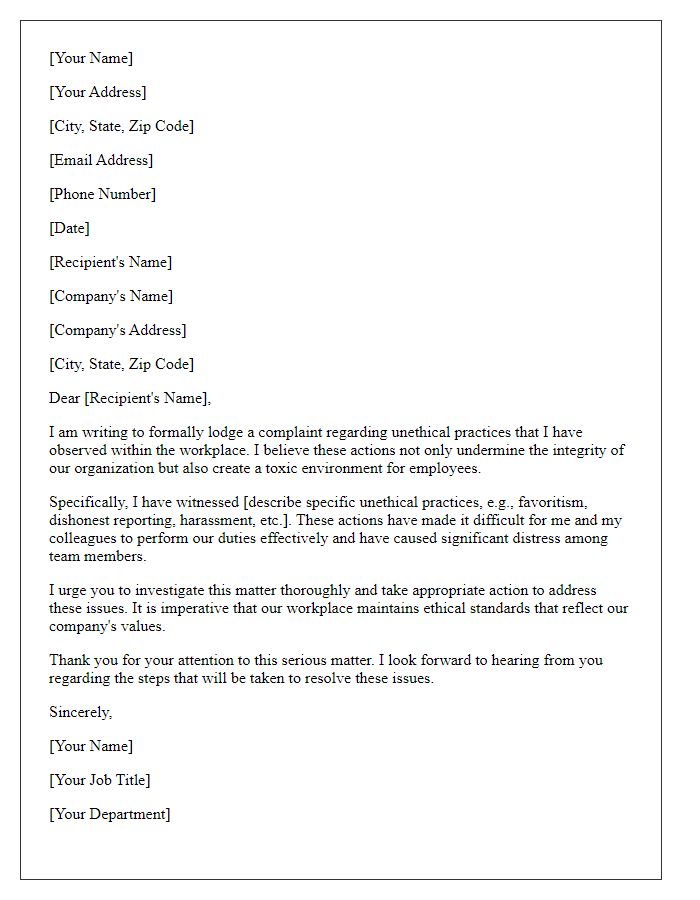
Letter template of formal complaint against unethical conduct by a colleague.
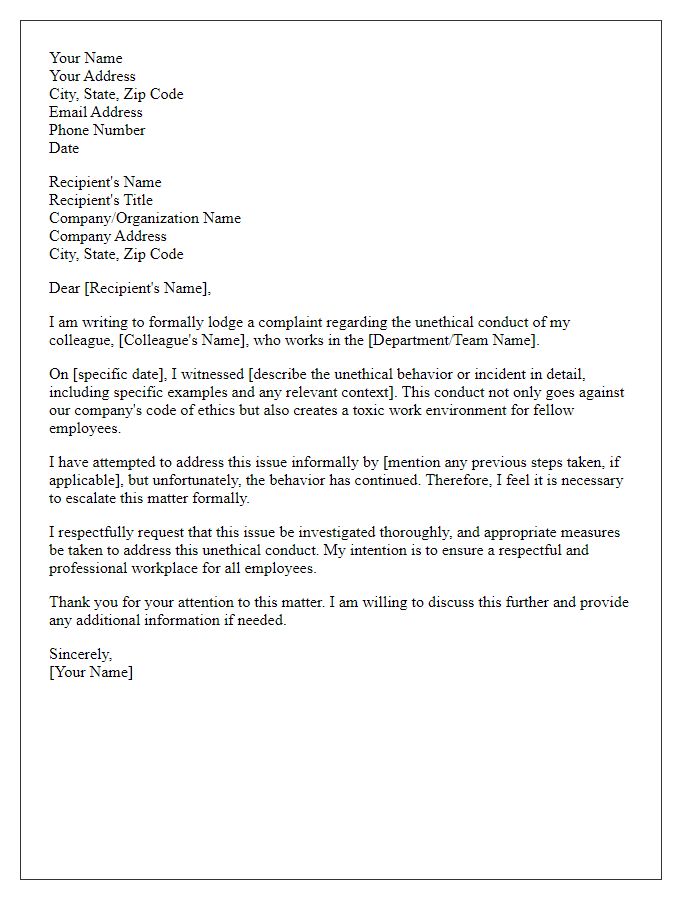
Letter template of formal complaint for unethical behavior observed in management.
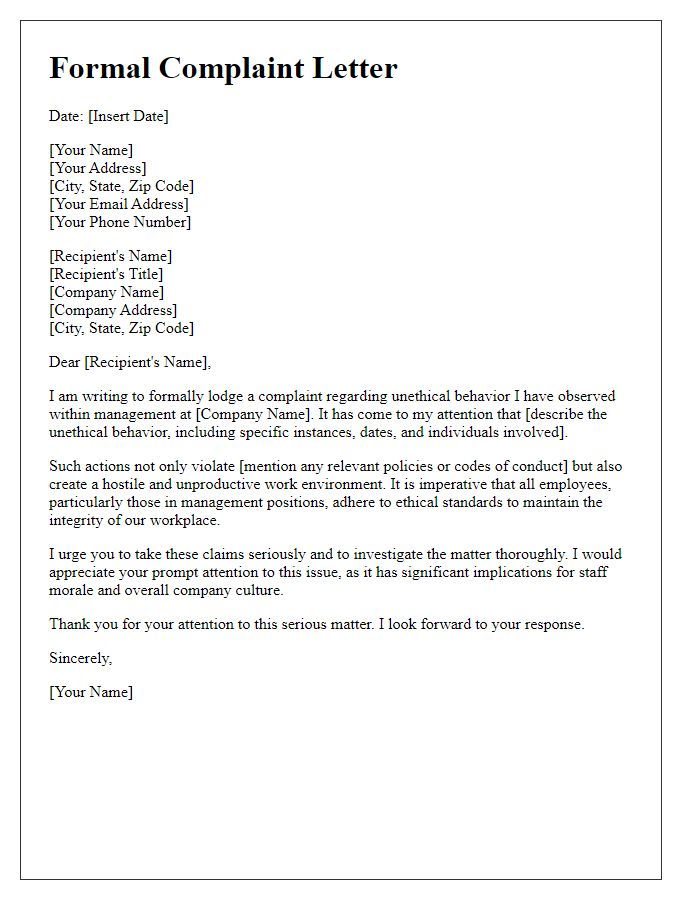
Letter template of formal complaint highlighting unethical actions affecting employees.
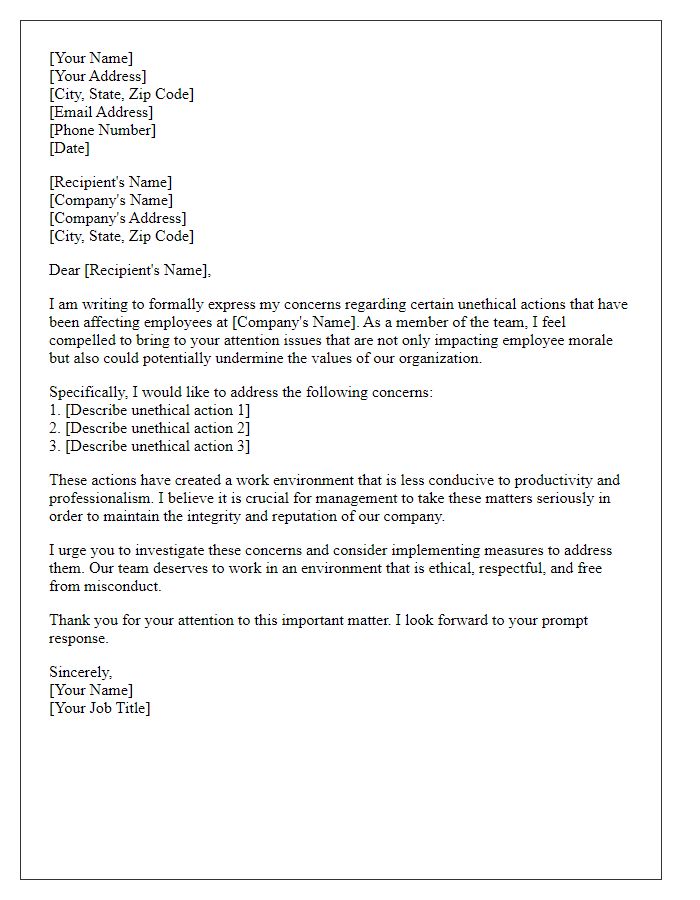
Letter template of formal complaint about unethical treatment of clients.
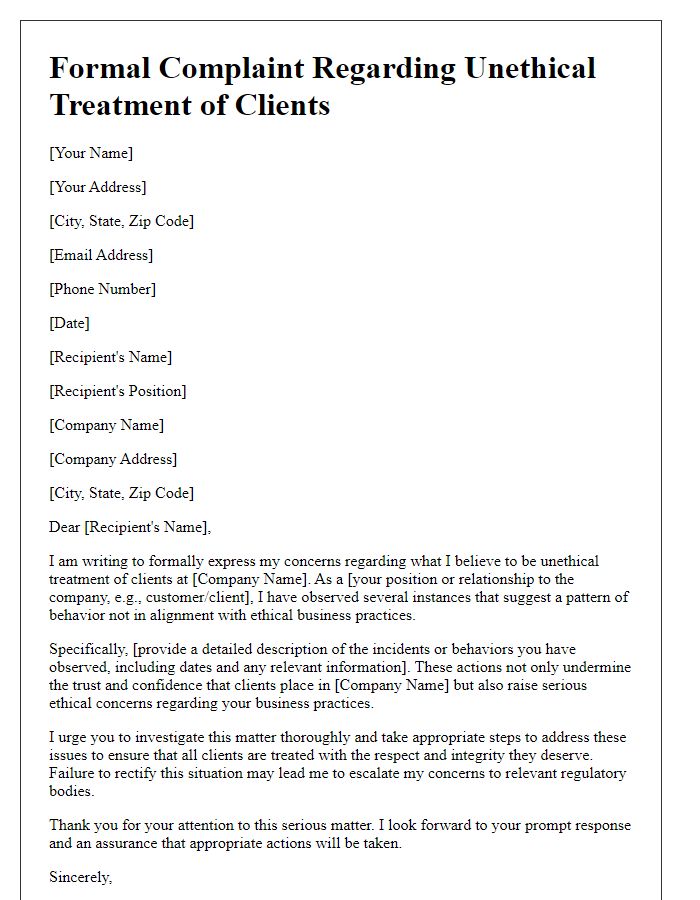
Letter template of formal complaint over unethical practices in project handling.
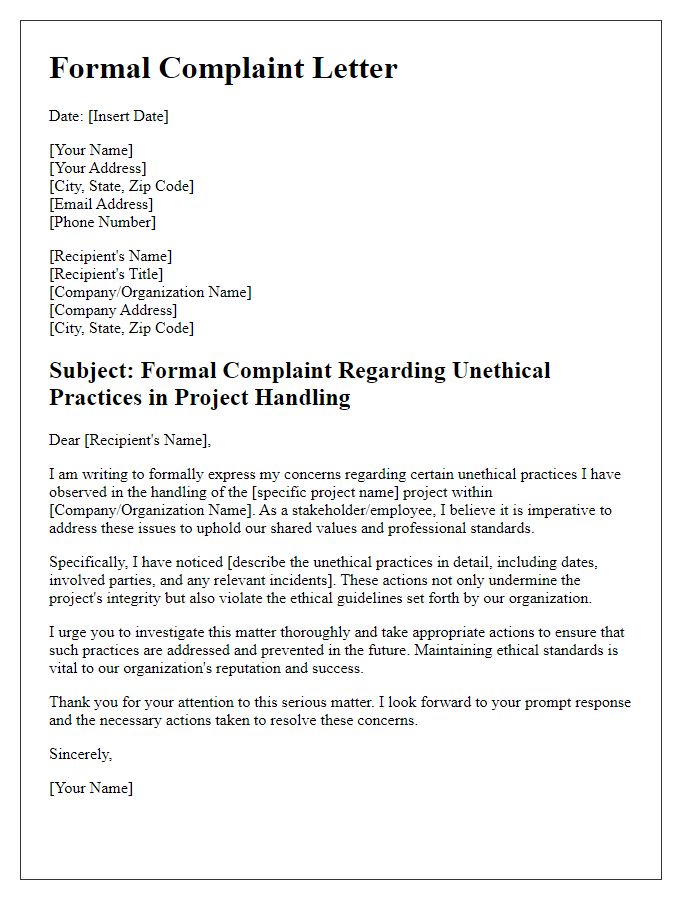
Letter template of formal complaint concerning unethical communications within the team.
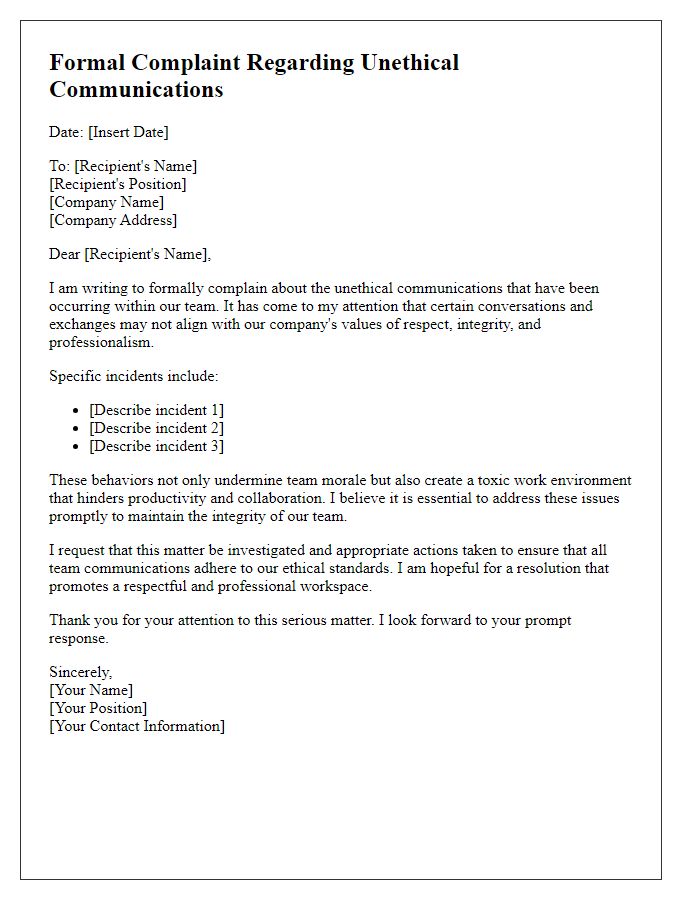
Letter template of formal complaint regarding violations of ethical standards.
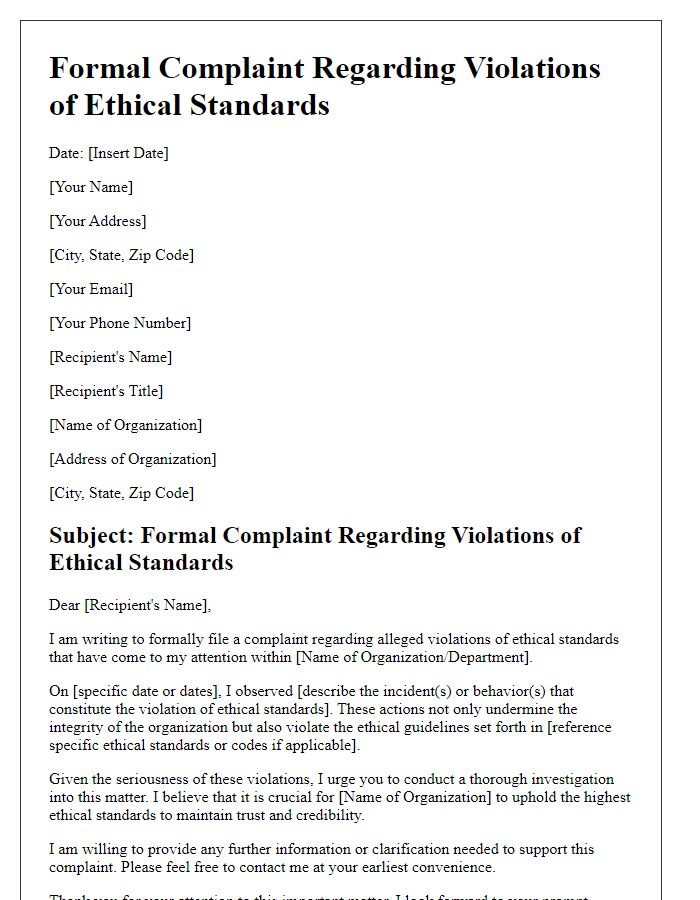
Letter template of formal complaint addressing systemic unethical behavior.
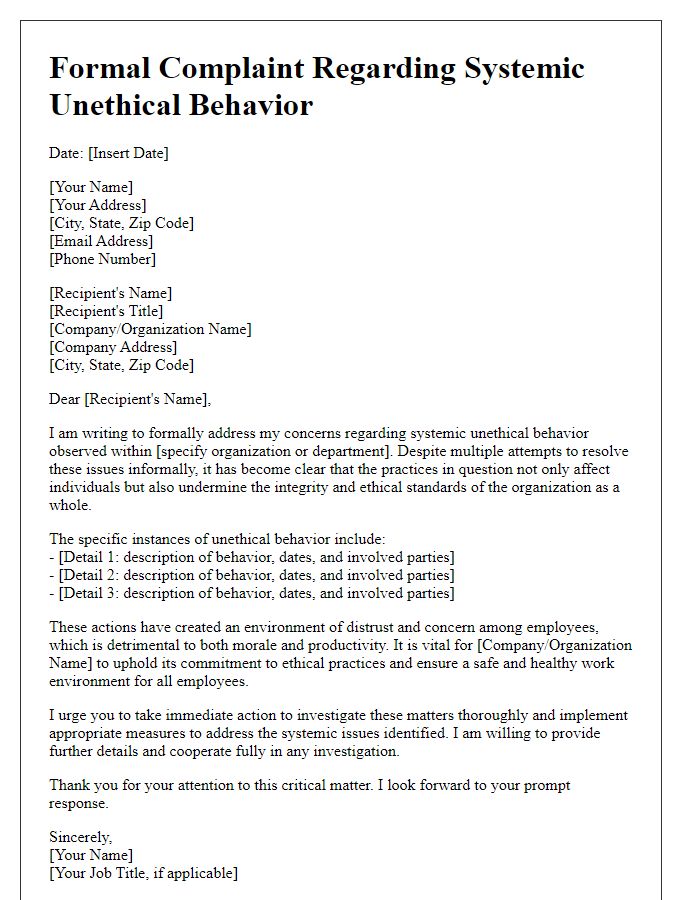

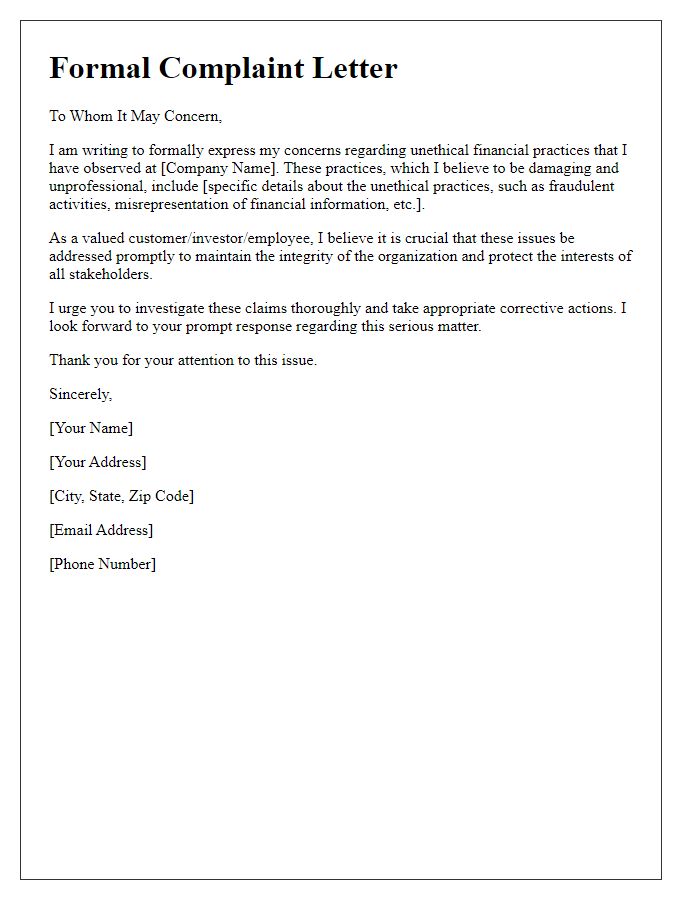

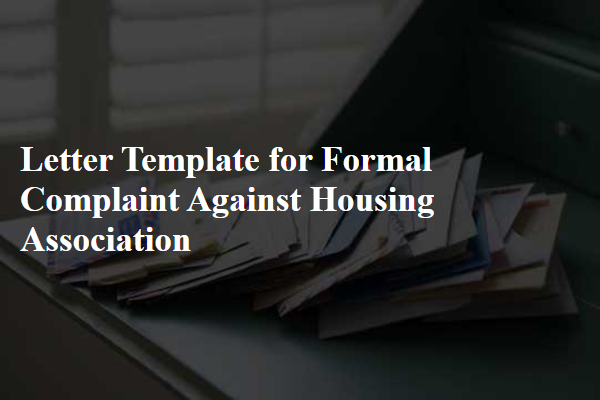
Comments